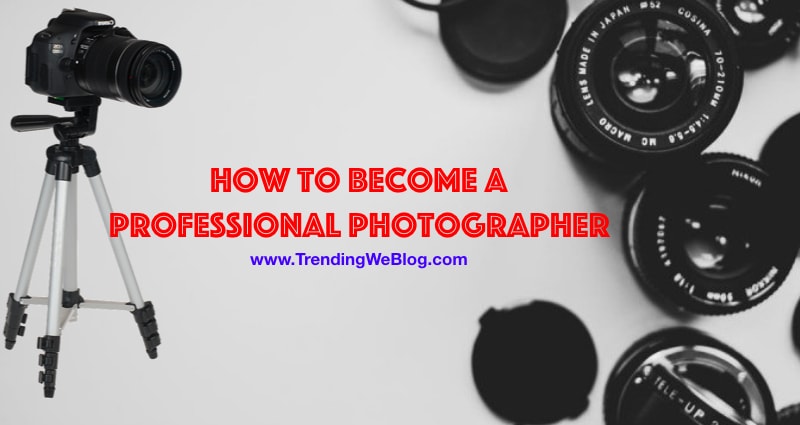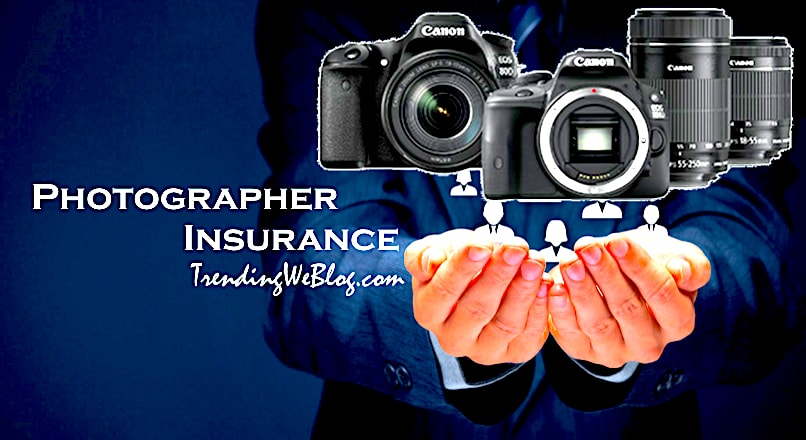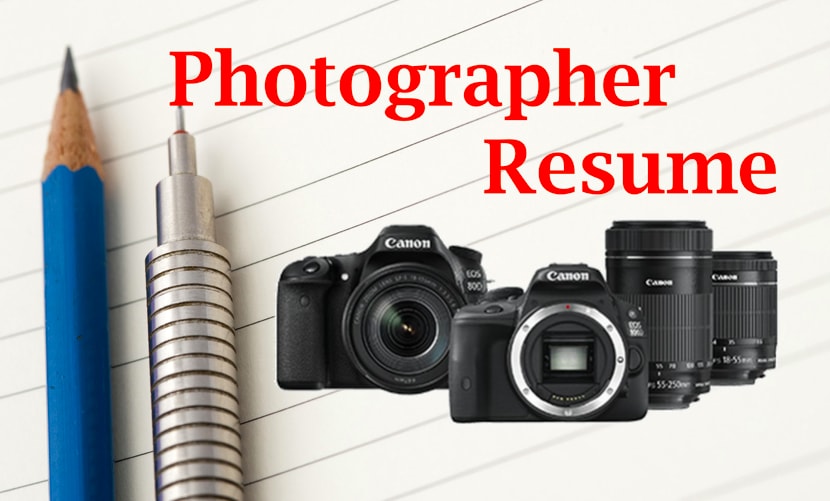How to become a professional photographer – Photographer is a learning process, you’ve got to constantly be trying to improve your work and make it better. If you are reading this you’re already on the right track and you really want to improve your work. Reading articles will help you to become a professional photographer. The very basic step on how to become a professional photographer is you need to learn something or the other every day. At the beginning of anyone’s photography career, people don’t educate themselves. Everyday learns about photography and educate yourself about how to improve. It may be learning about using your camera or learning how to improve the picture with a program like Photoshop and Lightroom.

Next important part in how to become a professional photographer is to look over your previous work and comparing it to your recent stuff. It will make you realise that how far have you come. If you want to be a professional photographer you need to do the same thing. To start your professional career in the photographer you should know how to become a professional photographer.
7 Tips on How to become a professional photographer easily
Find Your Speciality
When starting out, it doesn’t matter whether you’ve got a smartphone or a high-end DSLR. But you do need to know what kind of a photographer you are. Experiment with different genres to find the topics you enjoy and excel at. A good way to do this is to set yourself a new objective each time you shoot. One day you might shoot fine art and the next day street photography. Once you found the right direction, you need to establish expertise in that particular field. Because a deeper skill set often brings more value than a wider one. Finding work as a photographer’s assistant will help you to gain experience and accelerate your learning.
Get the Right Tools
Once you find the genre of photography you want to specialise in, you have to know what equipment to buy. There’s no need for a high-end set up when starting out, but you must meet the basic gear requirements for what you’re shooting. An 84mm lens, for example, would be necessary for portraiture, whereas zoom lens is ideal for landscape and travel photographers. A lightweight and portable tripod is also a highly useful tool for nearly all forms of photography. Just as important is a powerful storage solution where you can archive your work. Failing to backup could cost time, money and even your reputation with a client.
Build A Portfolio
A portfolio truly is the photographer’s bible and it’s also the first thing a potential client will look at. Social media sites are a quick and easy way to share your work, but a personal website always looks more professional. This is where you can display a dedicated portfolio of your work. When setting up your website, it’s a good idea to use a provider with flexible and intuitive templates that you can easily manage. This way you can keep the content fresh and update it with your latest work. It’s also worth thinking about the kinds of clients you want to attract. Many photographers who want to get their photography displayed at the exhibition will create more than one portfolio or website. This way they can separate their personal projects from commercial ones – such as wedding photography for example.
Find the Right Clients
Once you’re confident about your work and you’ve refined your portfolio, it’s time to see out clients. Don’t be afraid to aim big and share your work with large companies, but don’t send your portfolio to everyone. Identify the key businesses which you believe can benefit most from your services. If you’re good at portraiture, for example, send your portfolio to companies who may need corporate portraits for their website. A good way to get your foot in the door is to offer a day of free work. Remember, at first it’s better to show willingness by providing a free shoot than to set a precedent as someone who is cheap to hire. If they want to rebook, then you can charge well for your services. Just know your price in advance.
Become a Better Photographer Now
Understand the Business
If you’re starting to land jobs, you need to know the business. It’s important you keep track of your income and expenses. Create templates for quotes and invoices, request purchase order from your clients and be sure to register for tax in your local area. You should also prepare a standard contract which you can adapt for each project. This way you can ensure you always get paid as agreed. Don’t forget to obtain written permission for locations, models and you might also want to get camera insurance, as you never know what might happen.
Refine your Workflow
To optimise your efficiency and output, you need to create your own workflow so you never miss a deadline – reputation is everything. Even the little things like charging your batteries before a shoot and formatting your SD cards can save valuable time. It certainly doesn’t look good if you arrive unprepared. Get familiar with the post-production process and learn how to batch edit photos. Remember to regularly back up your projects on a hard drive that you can store safely at home. Establish a logical folder naming system to make your file easy to locate. This pays off if you get future requests from clients.
Promote your work
Don’t get complacent with a word to mouth. You should always make the effort to distribute your photography at every opportunity. Use social media to share your work with relevant brands and reward your followers with engaging, visual content. Self-promotion costs nothing online. Another way to spread the word is by creating something physical. Produce small prints of your work and send them out to former or potential clients. Even DIY style flyers and leaflets can serve as a strong reminder of your services. For personal projects and photo series, reach out to galleries. Exhibitions are a great place for networking and building awareness. Never lose sight of why you started shooting, this may one say be more important than you expect.
In conclusion
Before learning about how to become a professional photographer you need to learn some basic photographer concepts. Read the beginner’s photographer article and learn to use camera today. If your basics are clear than only you should learn – how to become a professional photographer.




